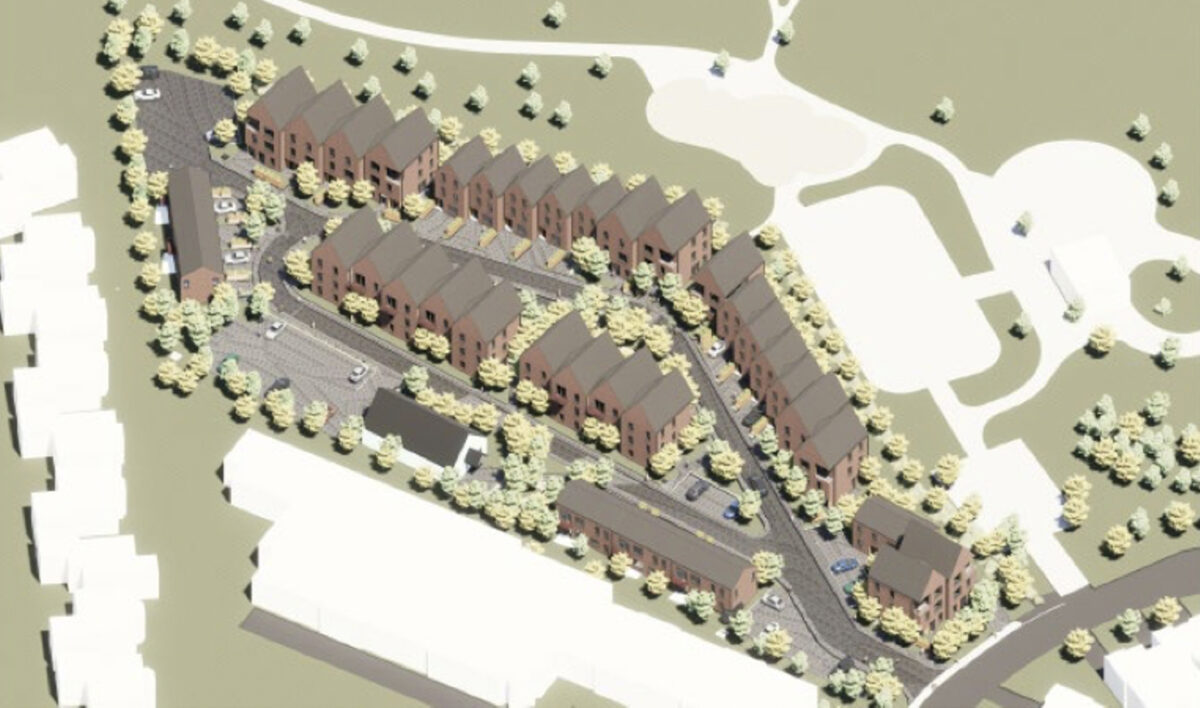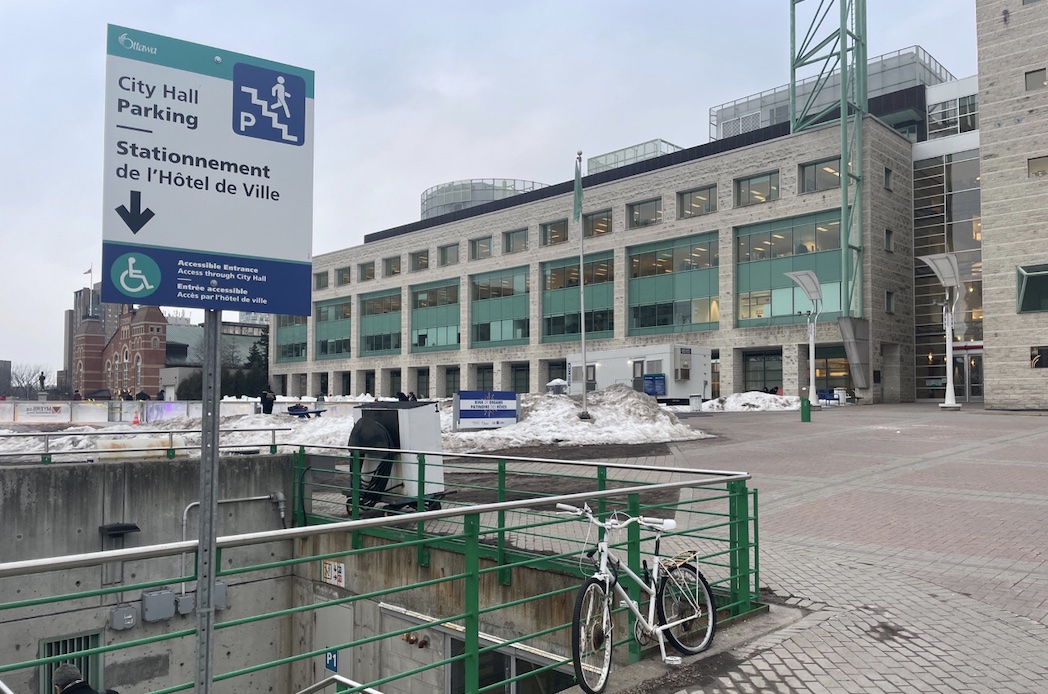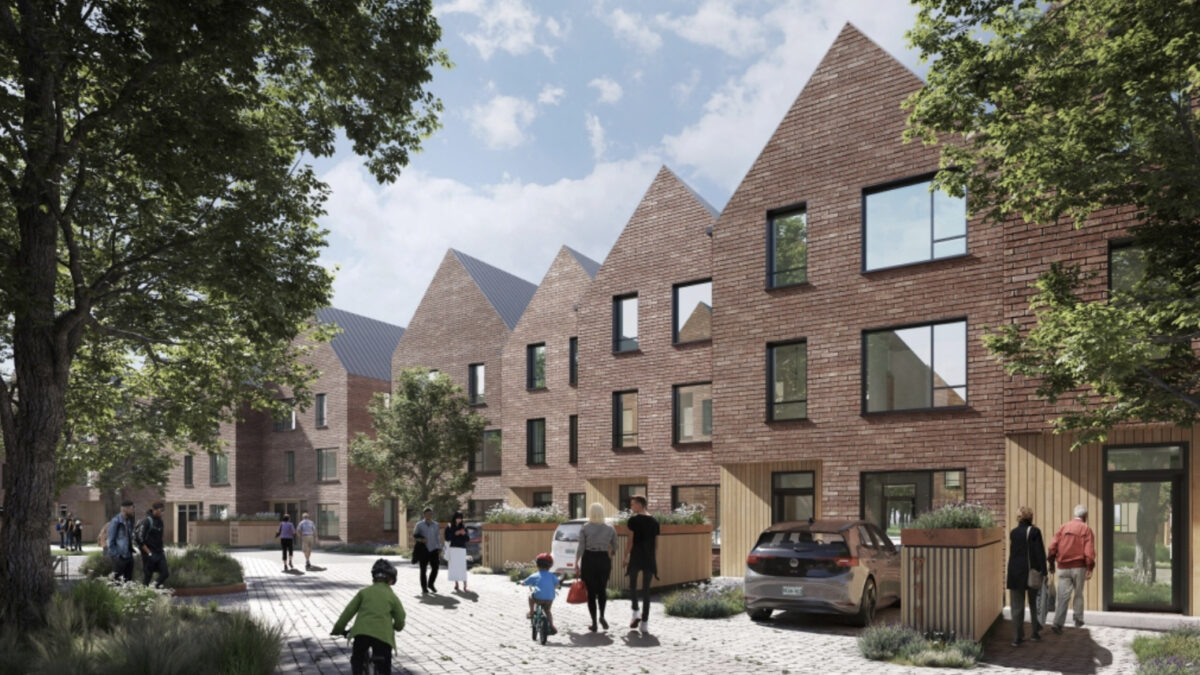The proposal for a controversial housing development in Orléans has been approved by city council after a wave of opposition from local residents, two contentious committee meetings and last-minute changes to the plan.
The housing project at 360 Kennedy Lane East would provide 81 rental units within a mix of three-storey townhouse units and three-storey walk-up apartments, many of which would be affordable housing. The development is planned on property owned by the adjacent Queenswood United Church.
Kindred Works, the project developer, brought the proposal to the city’s planning and housing committee on Feb. 27. Kindred representative Carley Forrester said at the meeting that the development “meets the needs of the neighbourhood by providing much needed affordable housing that’s not only compatible with the area but also consistent with the City’s Official Plan objectives and in close proximity to LRT transit that’s under construction now.”
However, in the face of significant community opposition, councillors sent the proposal back to the drawing board to “work through outstanding traffic and parking concerns” raised during the committee meeting by local residents.
A petition opposing the development — which had garnered more than 900 signatures — was brought to the Feb. 27 planning and housing committee. Its key concern was a lack of parking for the development and how that might have ripple effects on nearby streets.
With a total of 61 parking spaces for residents and 15 for visitors, 20 units would be left with no parking options on site.

According to the originator of the petition, Richard Rice, additional vehicles as a result of the development would create a traffic hazard that endangers senior pedestrians and small children at a nearby playground.
Rice argued that the lack of parking for some residents and visitors at the Queenswood development will force drivers to take up more street parking, affecting the users of the adjacent park — especially during sporting events — because of vehicle overcrowding.
The delay caused consternation amongst affordable housing advocates on council, including Somerset Ward Coun. Ariel Troster.
‘Do I need to unfurl a banner that says we’re in the middle of a housing emergency? I understand that there’s community concerns. I looked at the substance of this petition that residents signed and the majority of the issues that are brought up have nothing to do with parking.’
— Somerset Coun. Ariel Troster
“Do I need to unfurl a banner that says we’re in the middle of a housing emergency?” Troster said to the committee. “I understand that there’s community concerns. I looked at the substance of this petition that residents signed and the majority of the issues that are brought up have nothing to do with parking.”
The City of Ottawa has been in a housing crisis since 2020. Currently there are more than 10,000 households on the waitlist for affordable housing, and some are expected to wait over five years.
Many advocates took to social media to express their support for the development and disappointment in the decision to halt the project.
In response to Troster, Ontario Conservative MP Scott Aitichison wrote on Twitter: “I don’t care what your political leanings are — this crisis we are in calls for #YIMBY champions, not #NIMBY cowards.”
NIMBY stands for “not in my back yard” and is used to criticize people who are opposed to change in their neighbourhoods.
Aside from parking, the petition claimed that the development would cause negative effects on existing home values; urbanize an otherwise quiet neighbourhood with noise and loss of privacy; cause the destruction of 21 mature trees; and perpetuate a “myth” about practical walking or cycling distances to local amenities.
“We object to intensification whether it be more crowded living facilities or a place for the family mini-van,” Rice told committee members. “Likewise we object to the idealistic concept of the 15-minute city.
“Residents in the suburbs live there because they have made a conscious choice to reject the stress of the urban environment in favour of a more relaxed, slower-paced lifestyle,” he said.
But another delegate, Orléans resident Miranda Gray, spoke in favour of the development.
“What we are talking about here is a modest increase in density to allow a bunch more people to have that independence and live on their own, in a community that they’d like to be in.”
Gray added: “This is not about cars, that’s a possession. It can survive being outside and you can live without it. But you need to have a home if you’re a human. This city needs to act to make sure that its residents have homes.”
As for the cars, Kindred Works said future residents will be made aware of parking restrictions and will not be guaranteed a spot as a part of their lease.
“We’ll be monitoring which tenants have cars and do not have cars. Should we not have any available space, we’ll be able to monitor that situation so that there is no external pressure put on the surrounding public streets,” said Forrester.

Forrester also said residents will be well informed of alternative transportation options, including promoting the OC Transpo pass and Equipass for lower-income individuals.
Despite the minimal changes made to the plan, the city planning and housing committee unanimously approved the Kennedy Lane proposal on March 20 and city council did the same two days later, on March 22.
“I’m very pleased with this,” Orléans West-Innes Coun. Laura Dudas told her committee colleagues. In the earlier meeting, Dudas had voted in favour of turning the proposal around.
“When it comes to a development, if we don’t get it right at the early stages, we get it wrong forever,” she said.
Kanata North Coun. Cathy Curry agreed with Dudas, stressing the role of the planning committee.
“The conversation we had here last time was not about housing or affordable housing. It was the details of this application for the parking. Just like in another application we had for the garbage,” said Curry.
“I don’t want to sit here for the next four years on housing committee and talk about, ‘Well, do we like affordable housing or not? Do we think affordable housing is good or not?’ Yes of course, we do.”




